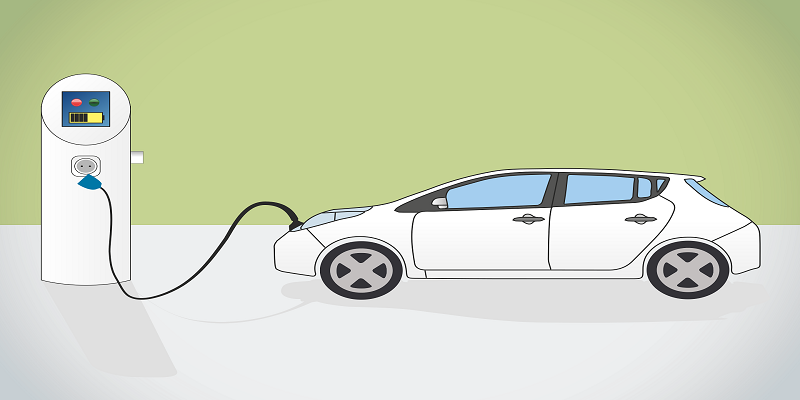The Future of Transportation: How Electric Vehicles (EVs) Are Revolutionizing the Auto Industry

The transportation industry is undergoing a significant transformation, driven by the rise of electric vehicles (EVs). These vehicles are not only changing how we travel but are also revolutionizing the auto industry. This article explores the future of transportation, highlighting how EVs are leading the charge in creating a more sustainable and efficient automotive landscape.
Electric vehicles have moved from the fringes of the automotive market to its mainstream. Several factors have contributed to this shift, including technological advancements, environmental concerns, and regulatory support.
Technological Advancements
The development of battery technology has been a game-changer for electric vehicles. Modern lithium-ion batteries offer greater energy density, longer life, and faster charging times than their predecessors. This improvement has made EVs more practical and appealing to consumers.
Moreover, advancements in electric drivetrains have enhanced vehicle performance, providing instant torque and smooth acceleration. Automakers are also integrating sophisticated software and autonomous driving features, making EVs smarter and safer.
Environmental Concerns
Climate change and air pollution have become pressing global issues. As a result, there is growing awareness of the need to reduce greenhouse gas emissions. EVs produce zero tailpipe emissions, making them a cleaner alternative to traditional internal combustion engine (ICE) vehicles. By adopting EVs, we can significantly cut down on pollution and mitigate the effects of climate change.
Regulatory Support
Governments around the world are implementing policies to encourage the adoption of electric vehicles. Incentives such as tax credits, rebates, and grants make EVs more affordable. Additionally, some regions are setting ambitious targets to phase out the sale of new ICE vehicles, further driving the transition to electric mobility.
Economic Impact of Electric Vehicles
The rise of electric vehicles is not only transforming the automotive sector but also creating economic opportunities and challenges.
Job Creation and Industry Growth
The shift towards EVs is generating new jobs in manufacturing, software development, and infrastructure. Battery production, in particular, is a booming industry, with factories being built to meet the growing demand. The expansion of the EV market also drives innovation in related sectors, such as renewable energy and smart grid technology.
Market Competition and Innovation
Traditional automakers face increased competition from new entrants focused solely on electric vehicles. Companies like Tesla have disrupted the market, pushing established brands to accelerate their EV plans. This competition fosters innovation, leading to better products and lower prices for consumers.
Infrastructure Development
The widespread adoption of electric vehicles necessitates significant investment in charging infrastructure. Governments and private companies are investing heavily in building a network of fast-charging stations to support EV drivers. This infrastructure development not only supports the growth of the EV market but also creates business opportunities and jobs.
Challenges Facing Electric Vehicles
Despite their many advantages, electric vehicles face several challenges that must be addressed to ensure their widespread adoption.
Range Anxiety
One of the main concerns for potential EV buyers is range anxiety—the fear that an electric vehicle will run out of charge before reaching its destination. Although battery technology has improved, and ranges have increased, this concern remains a barrier for some consumers.
Charging Infrastructure
While progress is being made, the current charging infrastructure is still insufficient in many areas. The availability of fast-charging stations is crucial for long-distance travel and for those who do not have access to home charging.
Upfront Costs
Electric vehicles typically have higher upfront costs than their ICE counterparts, primarily due to the cost of batteries. However, these costs are expected to decrease as battery technology advances and economies of scale are realized.
The Future of Electric Vehicles
The future of transportation looks increasingly electric, with several trends and developments pointing towards continued growth and innovation in the EV sector.
Battery Technology
Ongoing research and development in battery technology promise to address many of the current limitations of electric vehicles. Solid-state batteries, for example, offer the potential for higher energy density, faster charging times, and improved safety. As these technologies mature, they will make EVs more affordable and practical.
Autonomous Driving
The integration of autonomous driving technology with electric vehicles is set to revolutionize transportation further. Autonomous EVs could reduce traffic accidents, improve traffic flow, and offer new mobility solutions, such as ride-sharing and robo-taxis. This synergy between EVs and autonomous technology will create a more efficient and convenient transportation system.
Renewable Energy Integration
Electric vehicles can play a crucial role in the transition to renewable energy. By integrating with the grid, EVs can help balance supply and demand, store excess renewable energy, and provide backup power during outages. Vehicle-to-grid (V2G) technology allows EVs to feed electricity back into the grid, creating a more resilient and sustainable energy system.
Policy and Regulation
Government policies and regulations will continue to shape the future of electric vehicles. Stricter emissions standards and incentives for clean energy adoption will drive further growth in the EV market. Collaboration between governments, automakers, and other stakeholders is essential to overcoming the challenges and maximizing the benefits of electric mobility.
Consumer Adoption and Perception
Consumer perception and adoption of electric vehicles are critical to their success. Education and awareness campaigns can help dispel myths and highlight the benefits of EVs.
Environmental Benefits
Highlighting the environmental benefits of electric vehicles can motivate consumers to make the switch. EVs produce no tailpipe emissions, reducing air pollution and contributing to cleaner cities. Additionally, they have a smaller carbon footprint over their lifecycle compared to ICE vehicles, especially when charged with renewable energy.
Cost Savings
While the upfront cost of an electric vehicle may be higher, the total cost of ownership can be lower. EVs have fewer moving parts than ICE vehicles, resulting in lower maintenance costs. Additionally, electricity is often cheaper than gasoline, leading to savings on fuel.
Performance and Driving Experience
Electric vehicles offer a unique driving experience with instant torque, smooth acceleration, and quiet operation. Test drives and demonstrations can help potential buyers appreciate these advantages and make informed decisions.
Conclusion
The future of transportation is undeniably electric. Electric vehicles are revolutionizing the auto industry by offering cleaner, more efficient, and technologically advanced alternatives to traditional internal combustion engine vehicles. While challenges remain, ongoing advancements in technology, infrastructure, and policy support will drive the continued growth of the EV market. As consumers become more aware of the benefits and options available, electric vehicles will become an increasingly common sight on our roads, paving the way for a sustainable and innovative transportation future.




